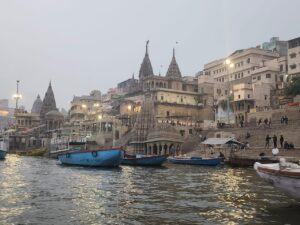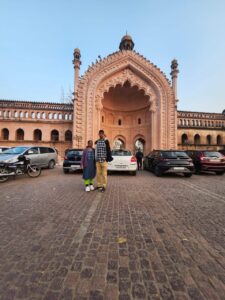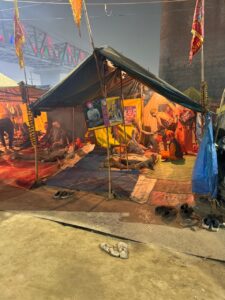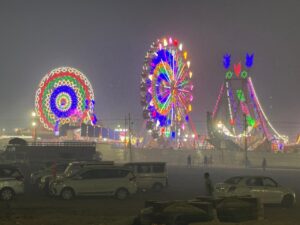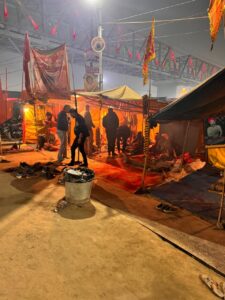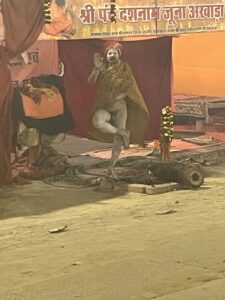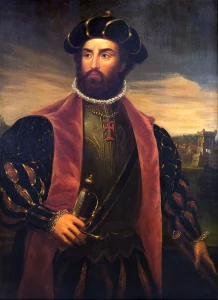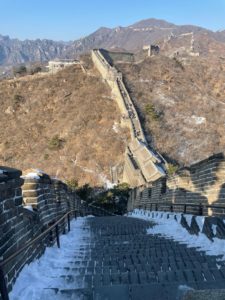
I spent five days in China, a first visit to the mainland.
My first visit to a country I have read about, is a mix of fact checks, search for stereotypes and surprises.
I visited two cities Shanghai and Beijing, and did not get a chance to speak to as many locals I would have liked to.
Some observations and musings from the trip.
Time to get the obvious out of the way- It is a large country and what I saw, is akin to a pothole in an ocean. None the less here goes.
The scale and quality of hard, physical infrastructure is imposing. The maglev train from Shanghai’s Pudong international airport, the orderly never-ending traffic on endless roads that crisscross Shanghai and Beijing, the extensive metro network, the omnipresent taxis- regular and via the cab hailing app and the digital ecosystem of Universal apps- WeChat and Alipay. The high-speed railway that takes you from Shanghai to Beijing- a journey of about 1300 kilometers in four and a half hours. Movement of people and information is fast. That it happens at a scale unmatched anywhere else in the world and the time in which this whole infrastructure has been built- is awe inspiring.
The state is everywhere, it is watching you from cameras in every corner but you do not see the state. No hoardings that tell you about the Chinese communist party or of one Xi Jinping. No cops on the roads, especially true for Shanghai. The state is unobtrusive. It knows where you are and what are you up to but all you get is the power of the state capacity- well organized and clean super cities. You live the force of state capacity but do not get to see the state.
Talking of hoardings, you do not see commercial ones nudging you to buy that new car or an apartment or the latest…. (Insert shoe/ phone/ perfume/bag). All outdoor advertising is on the facades of the stores and even there it looks understated. Miles and miles of roads without outdoor advertising takes getting use to, if one has landed from Delhi.
Labour is abundant and female participation is high. There are apps for food and groceries delivery at your doorstep. Delivery staff ride electric two wheelers, that make no sound, and sneak up on you.
Two wheelers, their riders young and old, men and women, abound. The only reckless driving seen in the cities is on two wheelers. Women work in retail and hospitality. They can be found behind immigration counters and at airport security. One place I did not see them was driving taxis. Not one, I hailed multiple taxis in both cities. Never found a woman behind the wheels. Every other job, you see them.
No overt religiosity. The Chinese have done away with the god(s). No places of worship, no congregations, no religious motifs in shops and commercial establishments. To paraphrase a local- money is our god and making money our religion. When asked how does he make peace with the uncertainties and unfairness of life, he answers- by making more money. Make money and spend money. How do I look, what am I wearing, what am I driving and where am I living? Who needs gods.
Tech has taken care of the language barrier. Get online and use an app that translates and one can get around and engage. Even the cops posted at Tiananmen square indulge your queries.
Lots of youngsters and a few kids. From airports, railway stations to public spaces, the first line of the state machinery is young. No middle-aged potbellied cops and ticket inspectors. You can see the one child policy at work. A child with two sets of grandparents and her adoring parents. Wealth accumulated by six adults being spent on one child.
No Caucasians, no Indians and the rich of the middle east are also missing. Two of the largest cities of in the second largest economy of the world. A country whose presence is felt in every nation and the world is not visiting its cities. No sign of large expat communities. No watering joints that are popular with Americans or Europeans. The weather was not the best for tourism but who is running the Europeans factories and the American banks. Guessing they went home for the Christmas break but are the Caucasians rare or what. The Africans are invisible. Not one African face in 5 days in China’s oldest and biggest cities. Not one.
China is a great example of what state capacity can do. A densely populated country that has been around for millennia, has transformed itself within four decades without hitting the jackpot of a natural bounty. Those running the country did not seek wisdom of the crowds by holding elections/referendums. The economic transformation was forced upon its people. Economic prosperity in exchange of political choice. The state derives its legitimacy from outcomes. That it does not indulge opposition does not make it unaccountable. The nameless and faceless bureaucrats who have built China in the last 40 years- no noble prize-winning economists or Chicago University professors there, have lifted millions out of poverty and within a generation delivered a quality of life most of us will never experience. The scale of transformation is unprecedented in Human history and as an Indian, one cannot but admire and grudge it.
What I would like to know is how they got an ancient civilization to let go of its past, how did they bulldoze consumerism and materialism through societal networks that had evolved over centuries- how did they do away with God.
What did the Chinese Communist party do to retain legitimacy as it pivoted from ideas like collective farming to allowing a tech and finance led millionaire class to flourish within a generation. Perhaps another trip calls.
Is the Chinese model replicable and should we try and replicate it in India.
The Chinese model is not unique and they are not the first ones to pull it off. Sustained economic growth for long periods has always needed some kind of labour and financial repression combined with protectionist trade policies. All the developed economies of today have indulged in both at some point in their growth trajectory.
Letting a small set of people decide the economic fate of millions is high risk strategy. If the elite are not good enough, the scale of failure is catastrophic. China from 1949 to 1979 is a good example of the magnitude of that disaster.
The result has too many variables we do not understand to give us a templet. Which brings us to the process. In India the state gets it is legitimacy through the process of its election. To forego that for a bet that the unelected elite will deliver on outcomes- think of the political party you loathe and now think of that party always being in power and is unable to deliver on outcomes. Let us stumble along I say.
